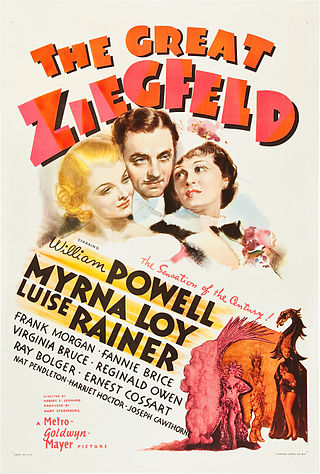
The Great Ziegfeld is a 1936 American musical drama film directed by Robert Z. Leonard and produced by Hunt Stromberg. It stars William Powell as the theatrical impresario Florenz "Flo" Ziegfeld Jr., Luise Rainer as Anna Held, and Myrna Loy as Billie Burke.
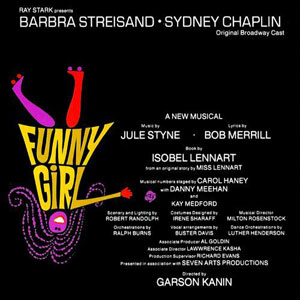
Funny Girl is a musical with score by Jule Styne, lyrics by Bob Merrill, and book by Isobel Lennart, that first opened on Broadway in 1964. The semi-biographical plot is based on the life and career of comedian and Broadway star Fanny Brice, featuring her stormy relationship with entrepreneur and gambler Nicky Arnstein.
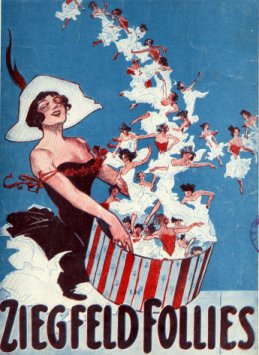
The Ziegfeld Follies were a series of elaborate theatrical revue productions on Broadway in New York City from 1907 to 1931, with renewals in 1934, 1936, 1943, and 1957. They became a radio program in 1932 and 1936 as The Ziegfeld Follies of the Air.
Louise Gold is an English puppeteer, actress and singer. Her long career has included puppetry on television and roles in musical theatre in the West End, as well as other television, film and voice roles.

Mary William Ethelbert Appleton Burke, better known as Billie Burke, was an American actress who was famous on Broadway and radio, and in silent and sound films. She is best known to modern audiences as Glinda the Good Witch of the North in the MGM film musical The Wizard of Oz (1939)
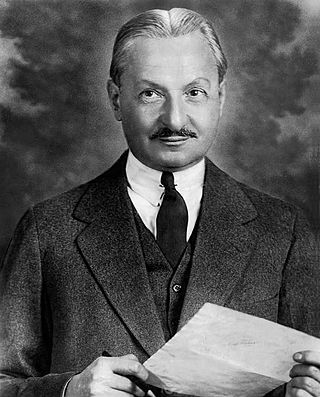
Florenz Edward Ziegfeld Jr. was an American Broadway impresario, notable for his series of theatrical revues, the Ziegfeld Follies (1907–1931), inspired by the Folies Bergère of Paris. He also produced the musical Show Boat. He was known as the "glorifier of the American girl". Ziegfeld is a member of the American Theater Hall of Fame.

Fania Borach, known professionally as Fanny Brice or Fannie Brice, was an American comedian, illustrated song model, singer, and actress who made many stage, radio, and film appearances. She is known as the creator and star of the top-rated radio comedy series The Baby Snooks Show.
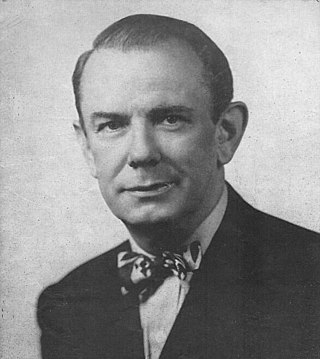
Eddie Dowling was an American actor, director, playwright, screenwriter, composer and theatrical producer.

Ziegfeld Follies is a 1945 American musical comedy film released by Metro-Goldwyn-Mayer, primarily directed by Vincente Minnelli, with segments directed by Lemuel Ayers, Roy Del Ruth, Robert Lewis, and George Sidney, the film's original director before Minnelli took over. Other directors that are claimed to have made uncredited contributions to the film are Merrill Pye, Norman Taurog, and Charles Walters. It stars many MGM leading talents, including Fred Astaire, Lucille Ball, Lucille Bremer, Fanny Brice, Judy Garland, Kathryn Grayson, Lena Horne, Gene Kelly, James Melton, Victor Moore, William Powell, Red Skelton, and Esther Williams.
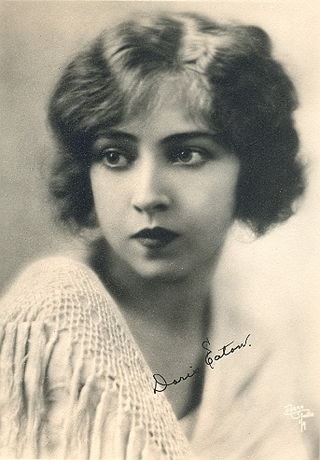
Doris Eaton Travis was an American dancer, stage and film actress, dance instructor, owner and manager, writer, and rancher, who was the last surviving Ziegfeld Girl, a troupe of acclaimed chorus girls who performed as members in the Broadway theatrical revues of the Ziegfeld Follies.
Isobel Lennart was an American screenwriter and playwright. She is best known for writing the book for the Broadway musical Funny Girl which premiered in 1964, although she also wrote scripts for successful Hollywood films featuring major stars, some of which received Oscar nominations.

The Ziegfeld Follies of the Air was a program broadcast on CBS Radio during the 1930s which attempted to bring the success of Florenz Ziegfeld's stage shows to the new medium of radio.

Funny Girl is a 1968 American biographical musical film directed by William Wyler and written by Isobel Lennart, adapted from her book for the stage musical of the same title. It is loosely based on the life and career of comedienne Fanny Brice and her stormy relationship with entrepreneur and gambler Nicky Arnstein.
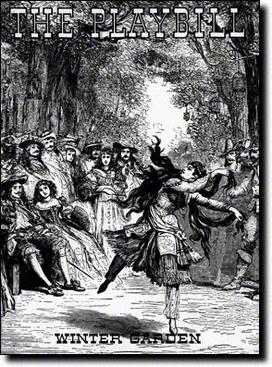
The Ziegfeld Follies of 1936 is a musical revue with lyrics by Ira Gershwin, music by Vernon Duke and sketches by Gershwin and David Freedman. The Ziegfeld Follies were a series of revues presented from 1907 through 1931, 1934, 1936, 1943, and 1957.

Kay Laurell was an American stage and silent film actress and model.

My Man is a 1928 black and white sound part-talkie American comedy-drama musical film directed by Archie Mayo starring Fanny Brice and featuring Guinn "Big Boy" Williams. In addition to sequences with audible dialogue or talking sequences, the film features a synchronized musical score and sound effects along with English intertitles. The soundtrack was recorded using the Vitaphone sound-on-disc system.

Lillian Lorraine was an American stage and screen actress of the 1910s and 1920s, and a prominent Ziegfeld Girl in the Broadway revues Ziegfeld Follies during the 1910s.

"Second Hand Rose" is a 1921 popular song written by Grant Clarke and James F. Hanley for Fanny Brice.

Blanche L. Merrill was a songwriter specializing in tailoring her characterizations to specific performers. She is best known for the songs she wrote for Fanny Brice.
The Ziegfeld Follies of 1919 was a revue produced by Florenz Ziegfeld Jr. Billed as the thirteenth edition of the Ziegfeld Follies series, it had a tryout at Nixon's Apollo Theatre in Atlantic City, New Jersey, on June 10, 1919 and opened at Broadway's New Amsterdam Theatre on June 16, 1919 and closed on December 6, 1919. It is often considered to be the best and most successful of the Follies series produced by Ziegfeld.

















